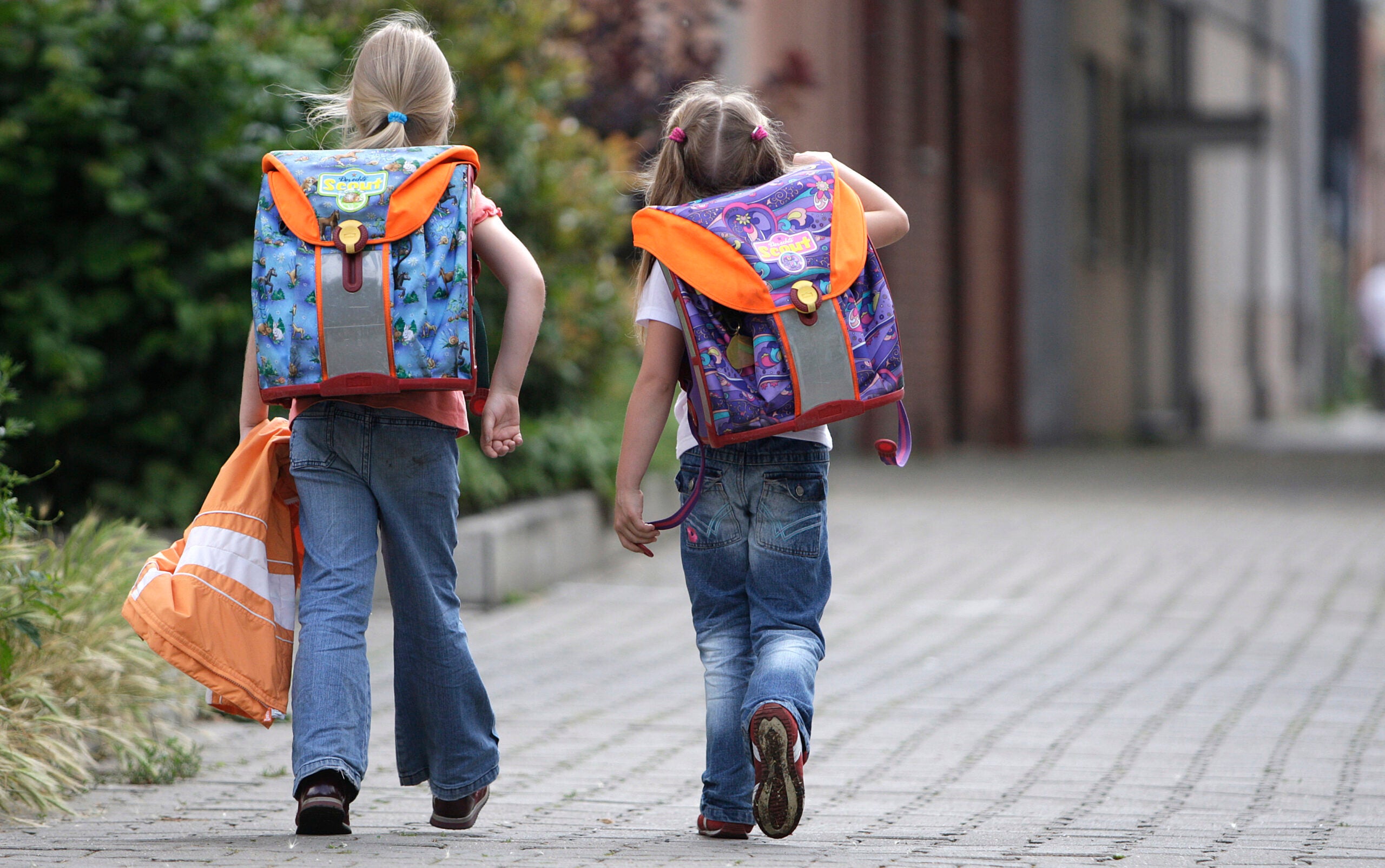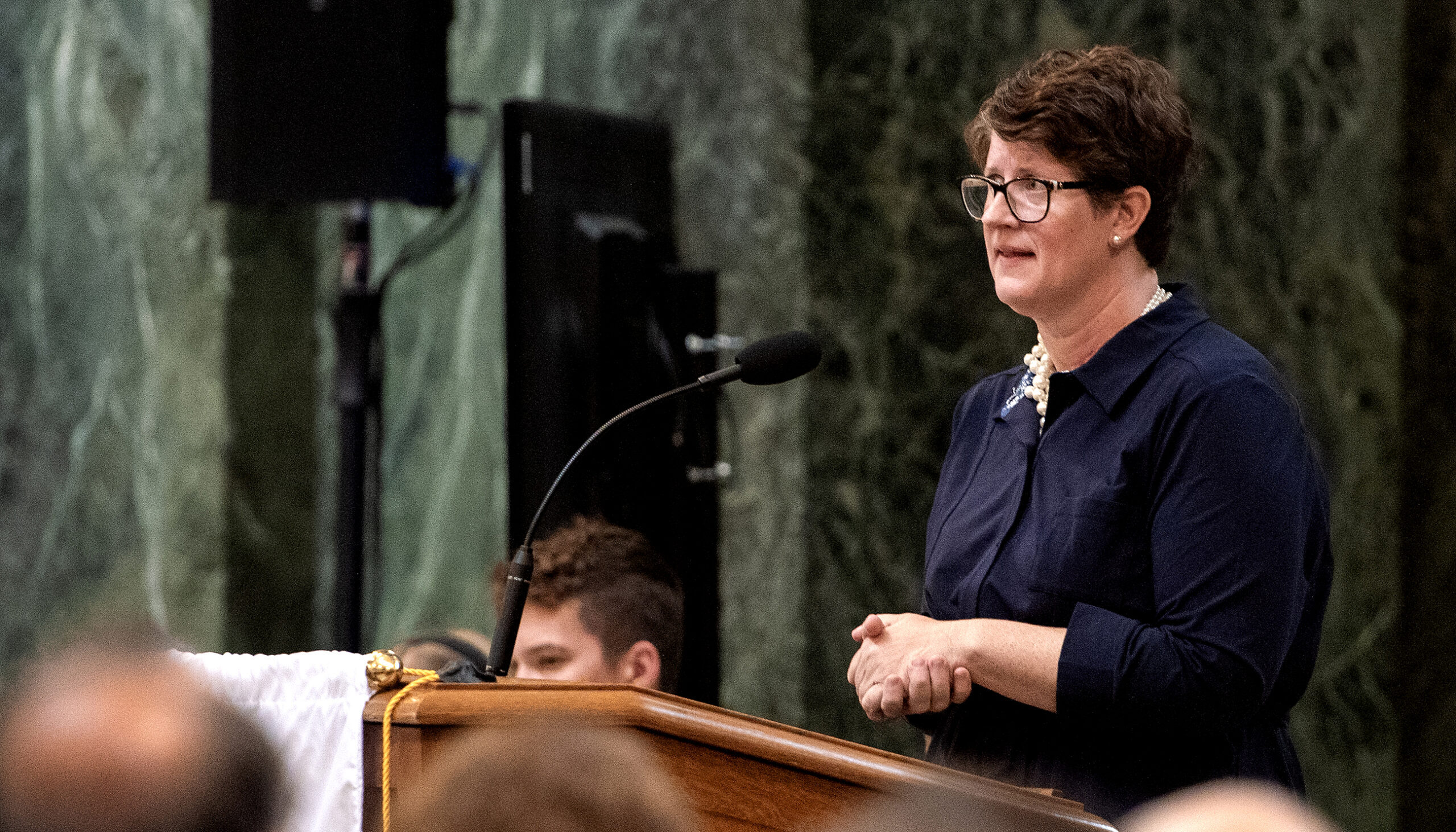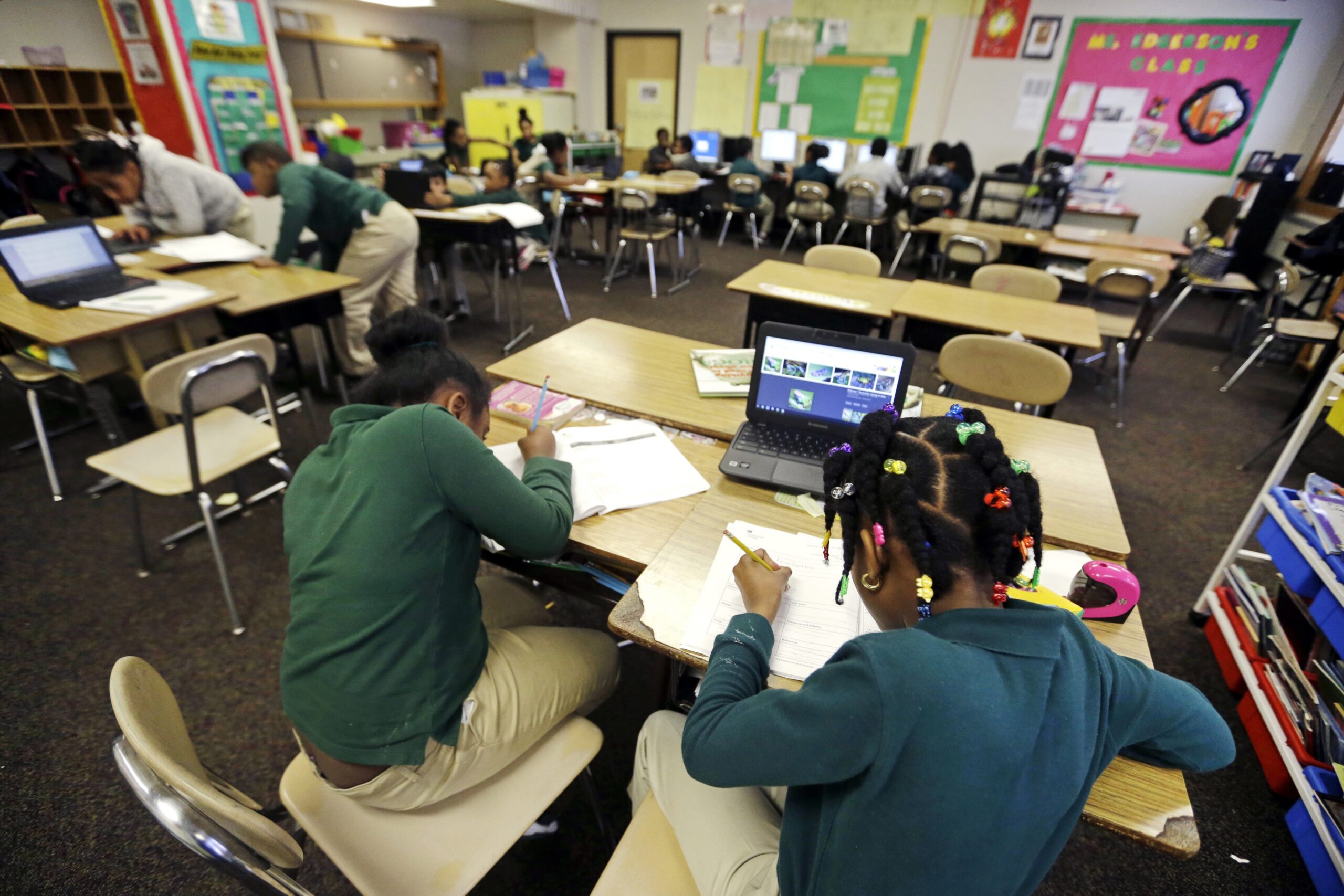Wisconsin school districts could soon have more flexibility in choosing their fall start date.
Under current law, Wisconsin public schools are prohibited from starting fall classes until Sept. 1.
The state Department of Public Instruction can grant school board requests for an exemption to start school early for “extraordinary reasons.”
News with a little more humanity
WPR’s “Wisconsin Today” newsletter keeps you connected to the state you love without feeling overwhelmed. No paywall. No agenda. No corporate filter.
The number of requests to start school before Sept. 1 has gone from 18 in 2020 to 101 this school year, according to DPI. Now, an administrative rule is working its way through the Legislature that would expand the types of reasons for DPI to grant an exception for school districts.
If approved, exceptions would include factors that pertain to student graduation rates, reading and mathematics proficiency, school attendance, mental health of students and staff, and recruitment and retention strategies for educators.
This week, 600 people submitted testimony to the state in favor of the rule. Just over 60 people submitted testimony against.
Faith VanderHorst, the executive director of the Southeast Wisconsin School Alliance, which serves 27 urban and suburban public school districts, said starting school earlier would give students taking AP tests more time to prepare.
“AP tests are given on the same dates nationwide,” VanderHorst said. “It is common for school districts in the southern states to start in the second week of August. This provides those students with three more prep weeks.”
Dave Honish, who heads the Cooperative Educational Service Agency in Gillett, said there is learning loss over the summer. Starting earlier in August could help alleviate that, Honish testified.
The Tourism Federation of Wisconsin has long been against the change, saying repealing the Sept. 1 start date for public schools would lead to a loss in revenue for Wisconsin’s businesses.
Several members of the tourism industry testified against the change this week.
Bill Elliott, president and CEO of the Wisconsin Hotel and Lodging Association, which represents approximately 600 members, said changing the start date for schools won’t fix the problems facing education.
“At the same time, the changes would have a negative impact on the lodging industry and all the other businesses that make up Wisconsin’s tourism economy,” Elliot said. “Starting school before Sept. 1 shortens the Wisconsin summer for vacations and travel by families with school aged children, which negatively impacts the already short tourism season.”
Minnesota and Michigan have state laws that prohibit schools from starting until after Labor Day. School boards have autonomy in Illinois.
Under the administrative rule making process, a state agency can propose a change. After an economic impact analysis is completed, a public hearing is held and the draft rule is sent to the governor. All of this has already taken place in Wisconsin.
Now what is called a Clearinghouse Report has been made public for comments for the next 30 days. Once that is complete, it will be sent back to the governor and then a legislative committee will have 30 days for a passive review process. If there are no objections, DPI will make the new rule.
“The success of our students is the priority, so updating this outdated rule is another way we can give additional flexibility to our schools to help focus on our collective work and improving student achievement,” said Chris Bucher, DPI spokesperson.
State Rep. Joel Kitchens, R-Sturgeon Bay, said DPI should not get to change the rules, the Legislature should.
But the Legislature already attempted to.
In September 2023, Sen. Duey Stroebel, R-Cedarburg, and Rep. Amy Binsfeld, R-Sheboygan, introduced a bill that would have allowed school districts to start the Monday before Labor Day, but schools would have needed to be closed the Friday before the holiday.
The bill was sent to the Assembly Committee on Education but did not move forward.
Kitchens, who chairs that committee, does not support starting school before Labor Day. He said there is no evidence that adding three additional school days will improve student performance.
“Tourism is a big part of our economy here in Wisconsin and many, many families depend on that,” Kitchens said. “But it’s not just good for business. It’s good for families. I mean, my kids will tell you that the vacations that we took together as a family were some of their best memories, and I think it also played a big part of enhancing their education.”
Wisconsin Public Radio, © Copyright 2025, Board of Regents of the University of Wisconsin System and Wisconsin Educational Communications Board.







